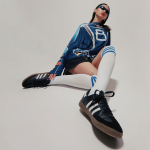As blizzards and freezing temperatures swept across much of the country in February, consumers were left sitting at home waiting for the spring thaw to finally arrive. Retailers, meanwhile, were left waiting for those very consumers to return to the cash register with the recently stocked capri pants, shorts, and t-shirts that tend not to sell during arctic weather patterns. According to Weather Trends International, last month was the coldest February since at least 1989 and national precipitation was 134% greater than the same month of 2006 with snowfall up 60% as well. Industry estimates target the effect of the cold as hampering comparable sales results by at least 50 basis points and possibly as much as 75 basis points in some areas.
Echoing this point was Terry Lundgren, CEO of Federated Department Stores, who observed of his company's results, “Sales in February were impacted by a series of snow and ice storms in the eastern half of the U.S., including those during the important selling days immediately preceding Valentine's Day. The geographic region that was most affected by adverse weather was the Upper Midwest.”
Though the weather had a negative affect on sales, not all was bad, as overall February chain-store sales grew by 2.5%, on a year-over-year comparable-store basis, as measured by the International Council of Shopping Centers preliminary tally of 54 retail chain stores. The improvement was in line with expectations of 2.5% to 3.0% comps growth for the month.
According to the ICSC data, Luxury stores continued to drive overall sales with an 11.2% comps gain, which drove a 2.1% increase in overall department comp sales. Discount chains posted a 1.5% comps increase for the month, while Wholesale Clubs saw same-store sales improve 3.9% over last years month. The teen segment, though, was unable to keep pace with the rest of the industry, as comparable store sales slipped 2.0% for the month.
Pacific Sunwear of California, Inc. saw February sales increase 1.2% to $89.8 million from $88.7 million last year. Total company same-store sales, however, decreased 5.7% for the month. By concept, PacSun same-store sales decreased 3.5% and demo same-store sales decreased 14.7%. Management said that comps exceeded the company average in Texas, the Northwest, Southern California, the Southeast and New England; and, that while PacSun was down for the month, the trend improved as February progressed, with the last two weeks posting a flat comp.
For PacSun, girls apparel comps were up high-single-digits; guys apparel comped down mid-single-digits; and footwear comps were down low-single-digits for the girls and down high-teens for the guys. Total footwear comps were down low-double-digits for the month.
Zumiez Inc. started the year off on the right foot, following up last years 28.0% comps jump with a 12.4% gain this February. Total net sales for the month increased 43.9% to $20.7 million, compared to $14.4 million for the same period last year.
The Buckle, Inc. reported a 10.4% increase in February sales to $37.7 million from $34.1 million last year. Comparable store sales increased 4.5%.
For March, industry chain-store sales are expected to increase by approximately 4.0% on a year-over-year, same-store basis as the annual “Easter shift” adds to the year-over-year sales volatility for March and April.














